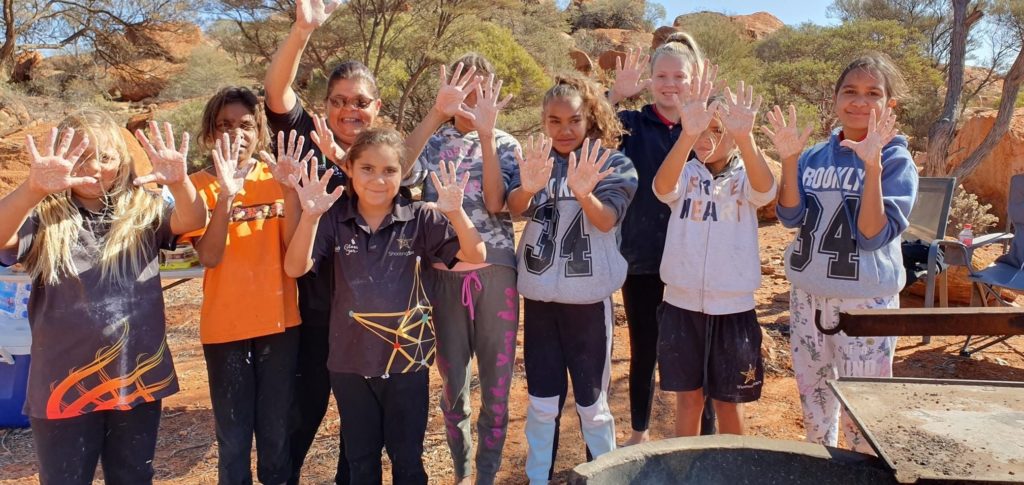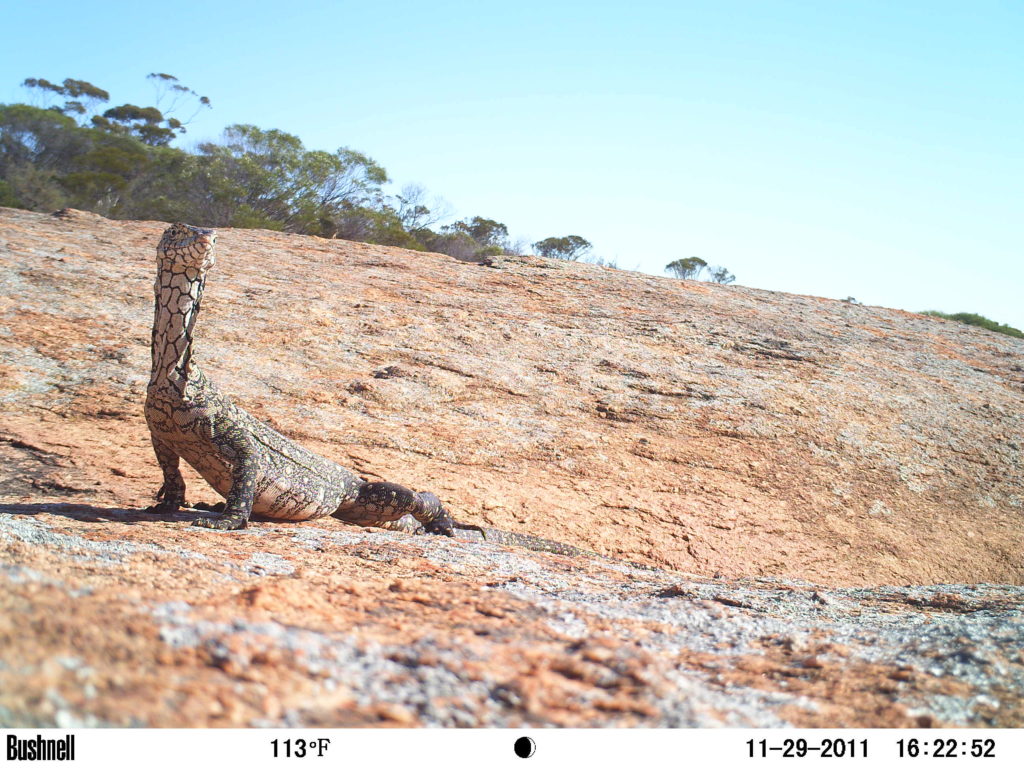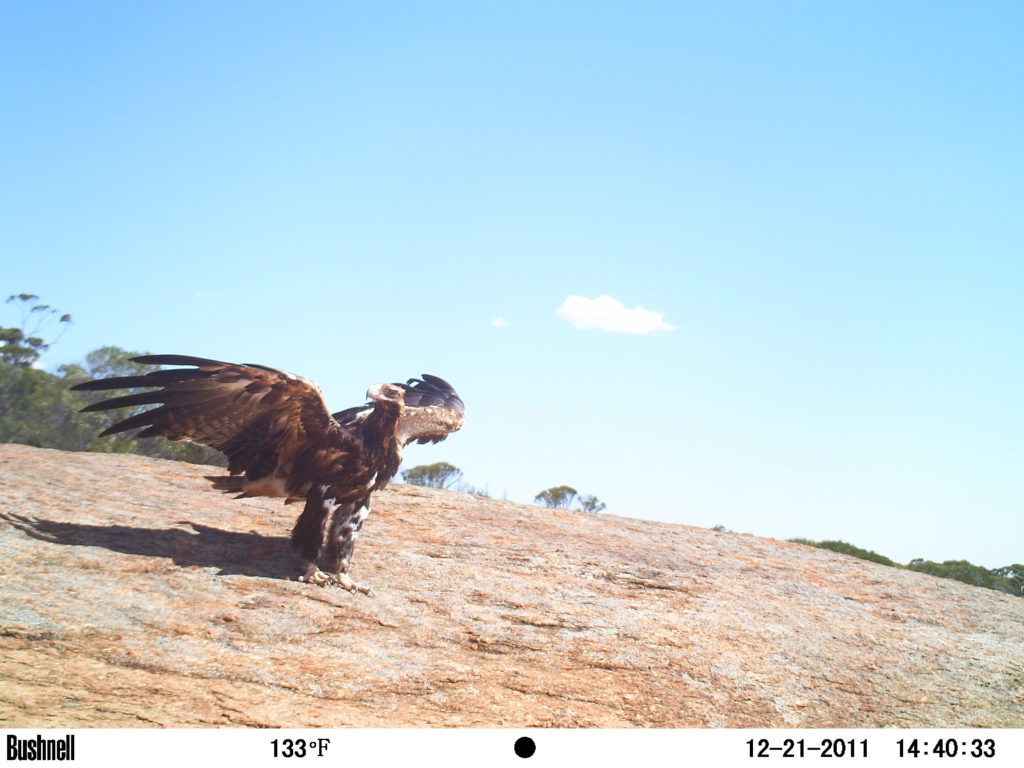Foundation for Rural & Regional Renewal (FRRR)
The need for the diversification of industry has been well known to the Northampton community for many years, given the heavy reliance on agriculture. Drought and unpredictable seasons have seen the withdrawal of many farming families, leaving an ageing population. Northampton has a median age of residents that is significantly older than the national average.
To address this issue, several community groups worked toward a common goal – to leverage the significant tourism potential of the town and bring in more visitors and diversify income. Northampton has a rich heritage, being one of only three towns in Western Australia to have attained the ‘Historic Town’ status. The development of an arts trail is a key feature of the plan, and the Northampton Friends of the Railway sought to add to it with the development and installation of a large 5m x 10m public sculpture.
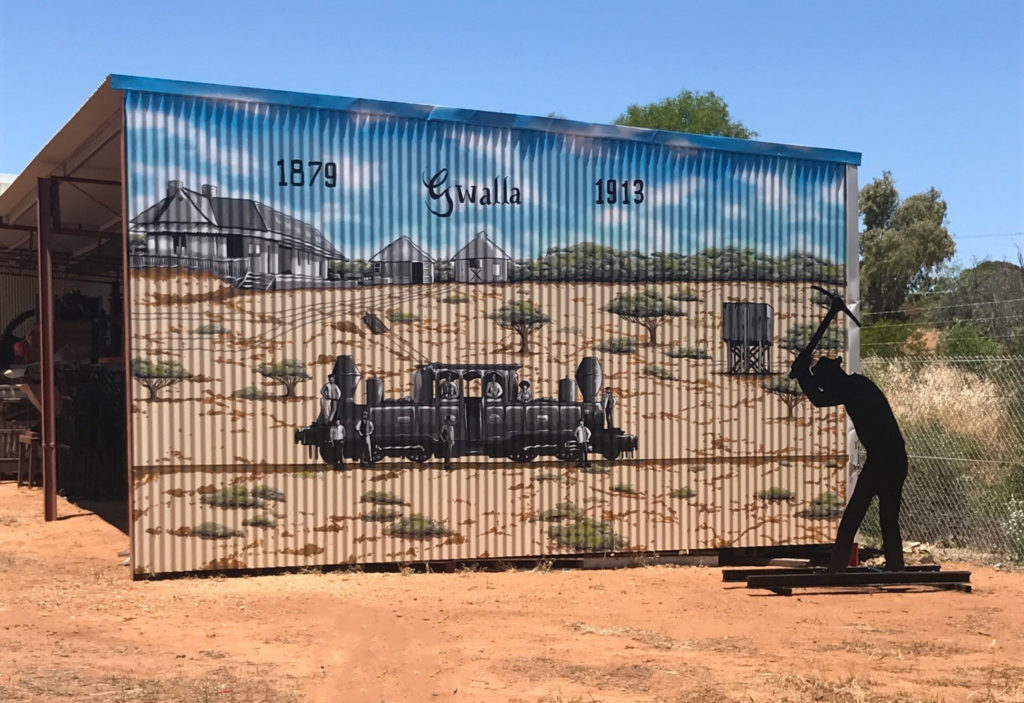
They worked with local artists and steel masons to design and construct the steal art sculpture with the $3,500 Strengthening Rural Communities grant, thanks to funding from the Bertalli Family Foundation, which was specifically used for its final design and painting. The piece depicts the historic Gwalla railway precinct with all of the original buildings of the railway station, some of which no longer exist, and is located exactly on a section of the first Government Railway in Western Australia. It’s an important interpretive piece to showcase the former area, given the significant role that the railway played in the township’s mining and agricultural history.
This project brought together economic, heritage and artistic outcomes, celebrating and promoting a unique local history.
‘Inspiring a curious community’ is the vision of Peel Bright Minds. Working in Western Australia’s Peel region, the organisation is particularly focused on stimulating increased engagement in ESTEAM (entrepreneurship, science, technology, engineering, arts and maths) activities, to foster a community that is positioned to up-skill and re-skill in the rapidly changing world and workforce. Population growth in the Peel region has been considerable in the past 10 years, driven by the mining boom, however the unemployment rate is higher than average, and local research identified a mismatch between the career choices and attitudes of young people and those careers currently available.
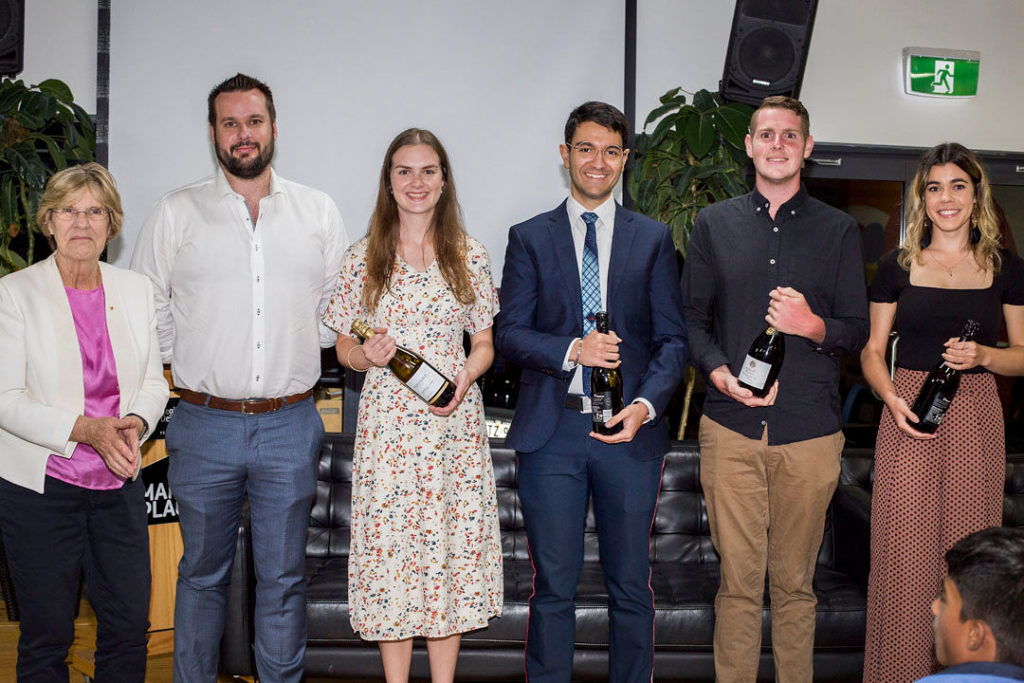
Peel Bright Minds applied to the ANZ Seeds of Renewal grant program In conjunction with Regional Development Australia – Peel) to develop and promote a series of multimedia-based local employment success stories, to provide higher awareness of locally available career pathways and inspire local high school students.
Following focus group discussion with some local year 9 and 10’s, Peel Bright Minds selected five young local STEM professionals, storyboarded the films in collaboration with a local business, and conducted on location filming and interviews.
The five videos are available to view on YouTube, they are 2 – 3 minutes each and feature inspiring stories of the STEM journeys of town planner Sarah, Edutech business creator Sam, engineer Katie, pharmacist Brett, and Reece who works in protected species management.
The project launch event in Mandurah in November 2019 opened with a keynote from Prof. Lyn Beazley, former Chief Scientist of WA, and was attended by 49 community members. Project Co-ordinator, Sarah Curran Ragan, said the audience was engaged with the films and the Q and A’s with the films’ stars.
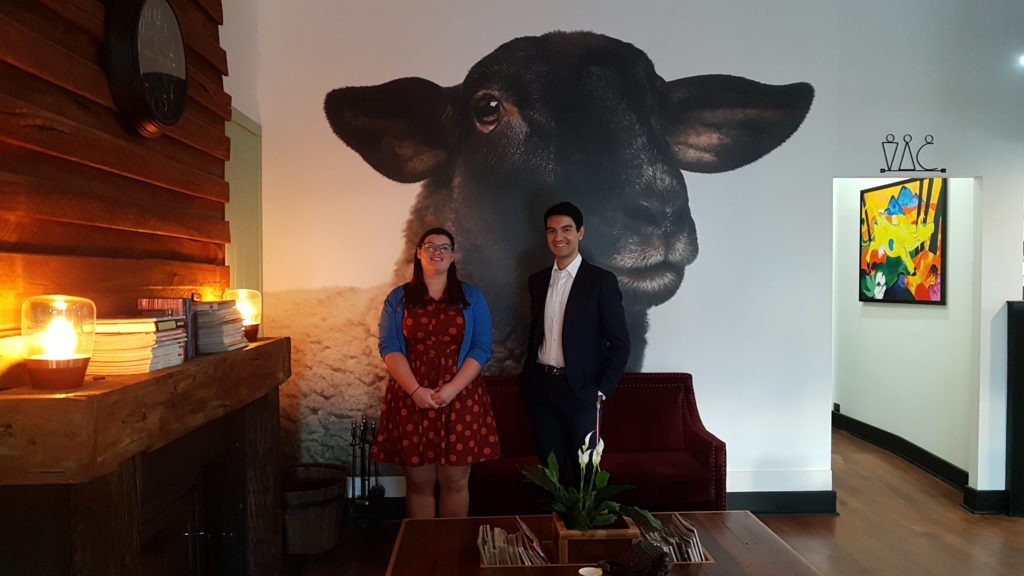
“The event was widely praised for being informative and uplifting and bringing a sense of pride to the community of Peel.”
The launch of the videos was promoted on local radio and shared widely on social media. A school’s pack has been developed to be used as a discussion prompt for teachers alongside the videos.
“The project has been very well received in the community. Peel Bright Minds could not have run the project without FRRR support. We have already made further plans to increase the films exposure in Peel schools, careers fair and other opportunities throughout Peel”
The videos will be shared through the Peel Bright Minds wide network of regional development and employment organisations across five local government areas, and Careers Advisers and Heads of Year in High Schools will be engaged to view the video with their students and discuss the stories and opportunities with them. The videos are expected to reach approximately 5,000 young people, educators and youth career influencers, contributing to the building of a highly skilled and high performing workforce, with fresh minds and innovative approaches to business for the Peel region.
Shooting Stars is a unique program, formed by Netball WA and Glass Jar Australia in 2014. It uses netball as a vehicle for empowering young Aboriginal women living in remote WA to improve their school attendance rates, while promoting health and wellbeing.
Shooting Stars aims to drive social change and close the gap created by gender imbalance in Indigenous support programs. Less than 30% of Aboriginal girls complete year 12, and the importance of the link between education and employment is well documented.
Participation in the program is incentivised with the opportunity to be rewarded with attendance to a camp and this has a huge impact on the success of the overall program delivery. Girls must meet the Shooting Star program benchmarks – either maintain an 80% or above attendance rate or show an improvement of 20% or more from the previous term, and exhibit exemplary behaviour in class.
“Being accepted onto the camp empowers these girls to feel that if they work hard, anything is possible.”
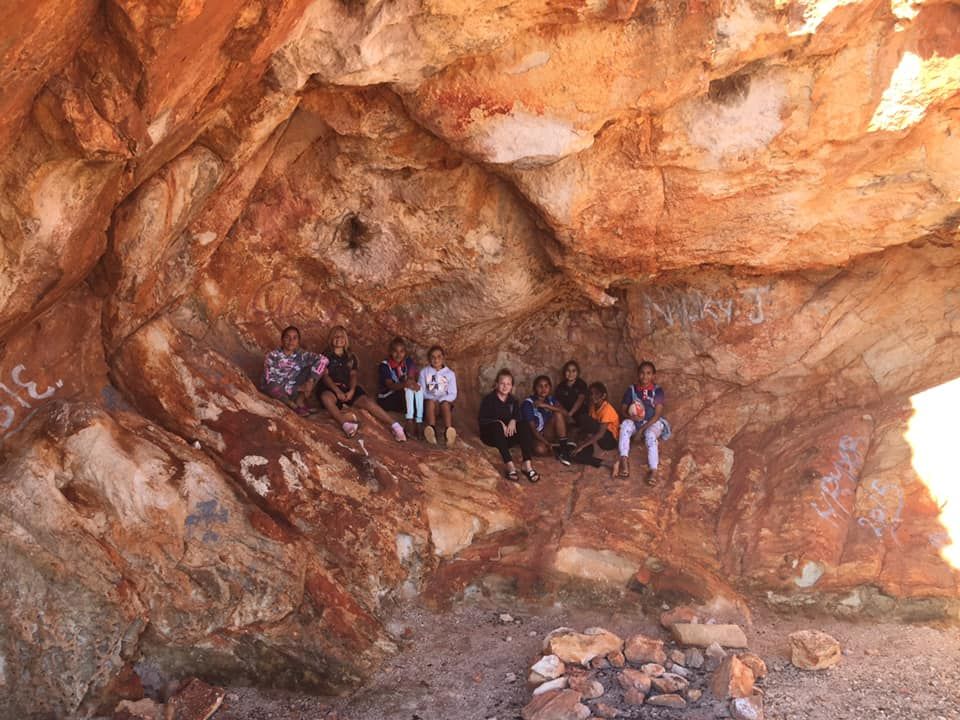
Funding of $5,000 from Round 33 of FRRR’s Small Grants program contributed to the Confident Me Cultural Rewards Camp held in Meekatharra in June 2019. Thirty girls, aged between 13 and 18 years, travelled On Country with Elder Noeleen Gilla, who led cooking and art activities. The cooking activity led to an engaged discussion around health eating habits and what the girls could do to better support their health and wellbeing by making healthy choices about what food they consume. The Confident Me workshop, a part of the Dove Self Esteem project, was a major component of the camp, and helped the girls focus on self-esteem and confidence, learning about media literacy, body image in the media, and how to manage social pressures. The camp culminated in a yarning circle about their experience of the camp, “They shared ideas in a safe, culturally appropriate environment and learned from one another and from camp facilitators.” The yarns are recorded and transcribed for evaluation of the camp. As you can see, the Camp is much more than a netball program!
“We are most proud that we are able to reward Shooting Stars for their improved attendance and behaviour at school. By supporting them to make positive choices throughout the school year we were able to reinforce their success through the Reward Camp, showing them that their hard work is valued.”
Melanie McKee, Community Investment Coordinator, 2019
Pemberton is a small community in the South-west region of Western Australia. With an employment shortage in the hospitality industry and limited access to local training for disadvantaged adults, the Pemberton Community Resource Centre (CRC) saw an opportunity to make a real impact.
They used a $4,890 Small Grant for Rural Communities to run a barista training course, which caters for disabled people and youth.
Working with other local community groups to identify people who would benefit from the barista training, the CRC were able to engage 42 participants!
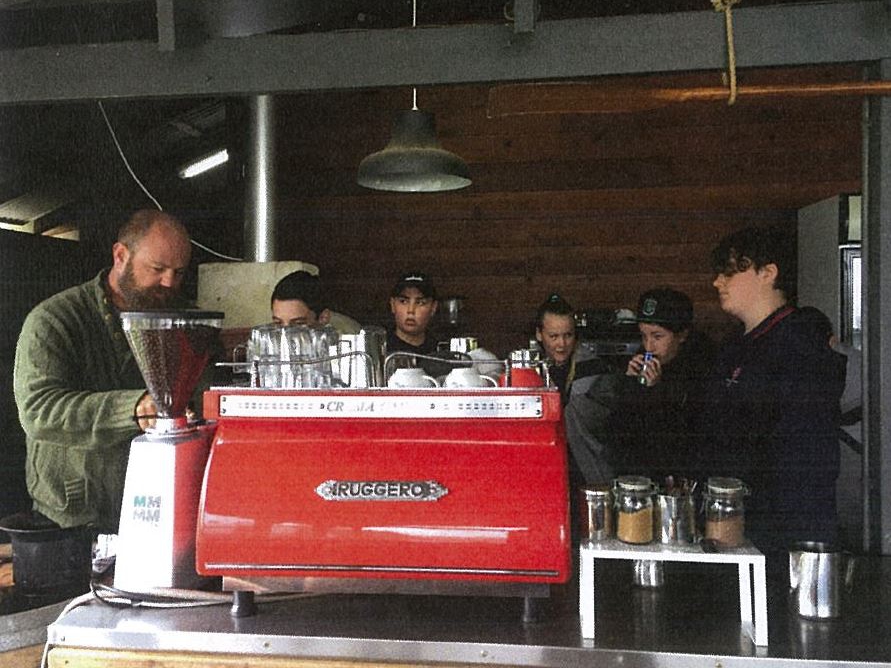
The course was such a great success that the local school is interested in continuing to work with the CRC to provide the barista training to their students. It has also given local business operators the ability to employ locally, where previously they relied heavily on the itinerant workforce, helping to strengthen the local economy.
It’s all about stealth when it comes to surveying native fauna and birds in the township of Mukinbudin, a town of 800 people some 296 kilometres north-east of Perth, in Western Australia. The town is situated in the Wheat Belt, and over the past few seasons has experienced severe drought conditions which has affected wildlife populations.
With the help of a $1,290 Small Grant from FRRR, the Mukinbudin Conservation Group was able to purchase three sensor cameras. These special cameras are triggered by wildlife moving and unobtrusively photograph the animal, recording the date, time and temperature.
Since 1986, the members of the Mukinbudin Conservation Group have been raising awareness about bushland, native plants and native animals. The Group, which consists entirely of volunteers, promotes the study and protection of Australian native plants and animals.
The group conducted a workshop to educate members in the local and surrounding communities on how to use the cameras to survey the native fauna in the area. Some of the footage from the cameras will screen at the towns annual Spring Festival in September.
Honourable Secretary for the Group, Joan Hobbs, said, “This is a great low labour, non-invasive way for the community to find out about the activities of the native animals. We will also be able to use the cameras in the Great Night Stalk which will allow the rural country youth to get involved in what’s happening in the surrounding bushland.”
As these photos show the cameras are working well and capturing the wildlife. It’s also creating an interest and passion within the community for the ongoing protection of the environment and means the community can continue surveying the wildlife well into the future.

